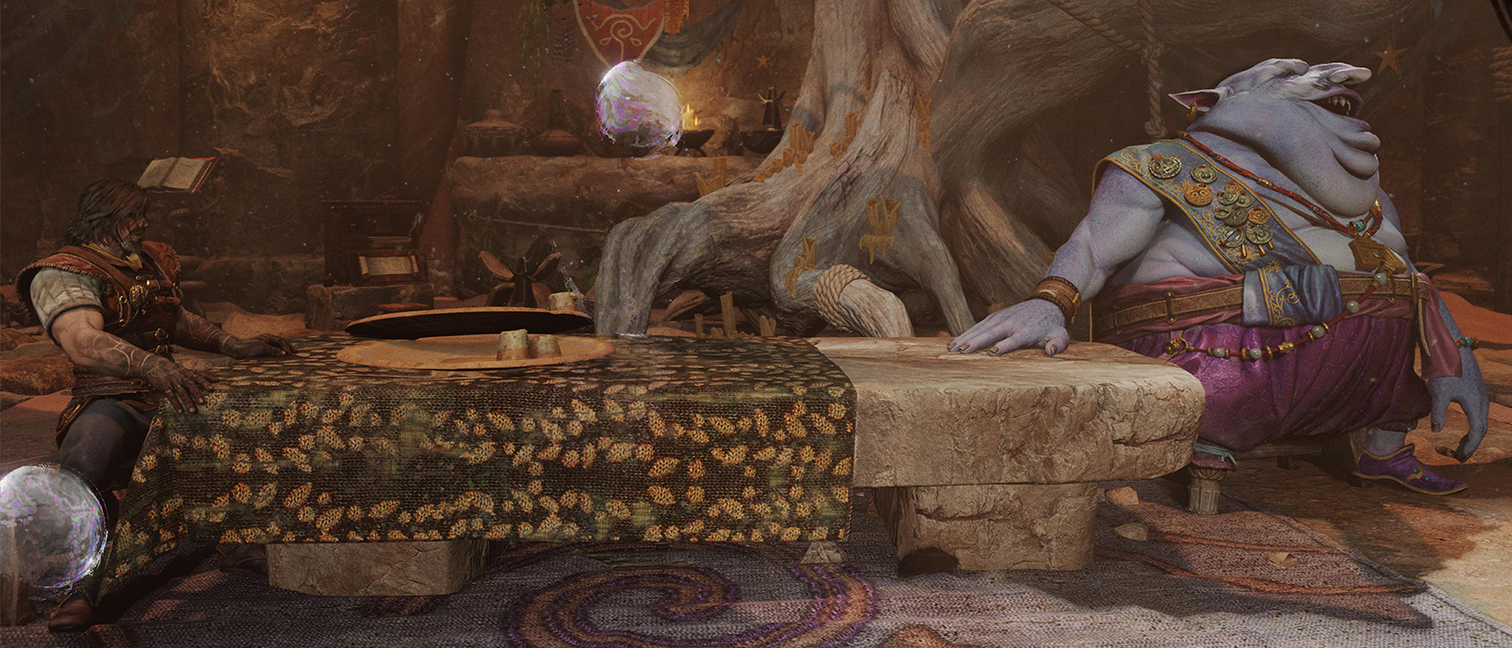Jimmy Wales
Wikipedia revolutionised the way we look for information. Now its founder has got his eyes on the search market. Oliver Lindberg talks to one of the web’s most colourful players, Jimmy Wales, about his forthcoming people-powered open source search engine
Jimmy Wales is in Australia, in a meeting with several dedicated Wikipedians who callhim the “God King”. Naturally, the online encyclopedia is still important for him, yet Wales gave up its foundation chair last year. His main focus these days is on the promotion of Wikia Search, the human-powered open source search engine project.
When The Times reported just before Christmas that Wikipedia founder Jimmy Wales was working on a search engine to rival Google, the search industry experienced its first major shake-up in years. Search, Wales claimed, was broken and in many instances Google produced “nothing but spam and useless crap”. The entire system including algorithms needed to be open and transparent to make it more trustworthy, said Wales. A neutral community similar to Wikipedia’s would then help improve the quality of search. “I’ve been working on this search concept for two or three years just as a side project, “Wales explains. “Then I realised the time was right – I was capable to get some funding and there was a lot of interest from the open source community. Also, when I looked at projects such as Lucene [lucene.apache.org] and Nutch [lucene.apache.org/nutch], which are existing open source projects, I noticed they have become more robust and of near top-notch quality in the last couple of years. So the technology seems about ready to be mature. If we can just give it a push, we should be able to put out something pretty good.”

The self-proclaimed objectivist says his alternative project is “totally, radically new” and eventually will shift the balance of power on the web. “Right now, if you look at the major proprietary search engines such as Google and Yahoo, the quality of search results isactually quite similar. To me, this just says that searches are becoming a commodity. It’s something lots of people can do if they take the algorithms that are available for free, and therefore people don’t need to go to a search engine any more. They’ll be able to search wherever they are. It puts a lot of power back into the hands of content creators such as newspapers and magazines. They’ll be able to offer good-quality search that’s customised to their own needs using their own software, and don’t really have to send people away who want to search for something. I think that’s going to shift the power structure of the internet away from search engines and back to content providers.”
Power to the people
Just how Wales will revolutionise the search market isn’t quite clear. He says the design is in the beginning stages, and he doesn’t know how the ranking system will work nor how many pages they’ll crawl. “It’s hard to measure the size of the web,” he says. “I believe that some of the estimates of the crawling sites of the web are really more a definition of how we define what is a page. As the web becomes more dynamic, and we have more ‘Ajaxy’ Web 2.0 applications, the idea of a page in the sense of a single HTML document becomes more antiquated, and it gets a little more complex to talk about how many pages there are on the internet. Only a portion of all the documents on the internet is actually worthwhile quality. A lot of what’s out there isn’t useful from the search perspective.”
We do know, however, that people will be able to contribute algorithms and applets to search sites more intelligently. Wales says: “One of the areas where we expect open source developers to do a great job of contributing is if you have a site that’s fairly complicated and you can only extract information if you apply some human intelligence to figure out how to do it.“ Then, of course, there will also be a social community similar to Wikipedia’s that will be able to change algorithms and get involved in ranking, rating and sorting URLs in terms of quality and appropriateness.
You need to give the community full editorial control and all the tools that they need to keep the bad people out
Getting the word out and starting this community to make sure Wikia Search gets off the ground is Wales’ main challenge, and he’s not too worried about the open source approach. Indeed, it’s crucial. “To me, it’s the most effective model,” he explains, “so it’s not nearly as challenging as doing everything in a proprietary way, which I think is increasingly becoming untenable from an economic point of view.” Spammers, on the other hand, are adanger to any open project, yet Jimmy Wales is confident that another army of volunteers will do a great job in true Wikipedia style. There’s already a core team in Poland, and developers from all over the world are keen to participate. “People are basically good,” he says. “That’s one of the important lessons. You need to give the community full editorial control and all the tools that they need to keep the bad people out.”

When the first version of Wikia Search is released towards the end of the year, it won’t be a great search engine. Wales admits that it’s “probably going to suck”, but his motto is “release early, release often”. Wikipedia initially didn’t have much content either and he doesn’t expect a fully functional search engine for a couple of years. While it’s experimental, Wales says he’s trying to have as much fun as he can.
Fun is important for Jimmy Wales, but it’s not all about the greater good and his ideal “to make the internet a broad democratic medium with openness, transparency and free licensing”. And although he’s often playing the modest geek (and self-confessed cheapskate) who lives in a single-storey house, flies economy and drives a Hyundai, he’s not short of a penny or two. He made loads when he was an options trader inthe 1990s to live a comfortable life, and toafford his beautiful, silk Chinese outfits. In fact, whenasked whether he minds not having made any money off Wikipedia, he laughs and says, “I’ve done something even better than that, so I’m not too worried about it.”
A profitable venture
One of the things that Google has done a really great job of is separating the editorial content from the advertising content
While Wikipedia is part of the Wikimedia Foundation, a nonprofit charity, Wikia Search is a venture of Wales’ for profit company Wikia. Since its launch in 2004 (under the name Wikicities), it has grown quietly but steadily. Wikia consists of a whole range of wiki communities dedicated to everything from autism toYouTube. It already has 500,000 articles in 45 languages (about 48,000 from Star Wars wiki Wookipeedia alone), produces 2.5 million page views per day and last year attracted $4million in funding from private investors, and another $10million from Amazon. Wales has also got some high-profile people onboard. Wikia’s CEO is Gil Penchina, who used to run eBay’s European business, and Jeremie Miller, creator of the open source IM platform Jabber, has recently been hired as technical lead for the search project. There’s ambitious plans to cooperate with some of Google’s rivals, and, as with all the other sites on Wikia, the search engine will generate money through advertising. “One of the things that Google has done a really great job of is separating the editorial content from the advertising content,” Wales says. “That’s something that previous search engines didn’t necessarily always do. Google has shown us the way forward as far as the business model in search is concerned.”
Thus, Wikia’s traffic could soon create a fortune. Google, meanwhile, seems confident Jimmy Wales won’t cause too much trouble for them. The company responded to his plans highlighting its own lead in search quality, and stating that the more ways people have to find the information they need, the better. Whether Google is right to remain calm or whether it underestimates him, we’ll know in a couple of years. It’ll be an interesting head-to-head.

Thank you for reading 5 articles this month* Join now for unlimited access
Enjoy your first month for just £1 / $1 / €1
*Read 5 free articles per month without a subscription

Join now for unlimited access
Try first month for just £1 / $1 / €1
Get the Creative Bloq Newsletter
Daily design news, reviews, how-tos and more, as picked by the editors.

The Creative Bloq team is made up of a group of art and design enthusiasts, and has changed and evolved since Creative Bloq began back in 2012. The current website team consists of eight full-time members of staff: Editor Georgia Coggan, Deputy Editor Rosie Hilder, Ecommerce Editor Beren Neale, Senior News Editor Daniel Piper, Editor, Digital Art and 3D Ian Dean, Tech Reviews Editor Erlingur Einarsson, Ecommerce Writer Beth Nicholls and Staff Writer Natalie Fear, as well as a roster of freelancers from around the world. The ImagineFX magazine team also pitch in, ensuring that content from leading digital art publication ImagineFX is represented on Creative Bloq.
